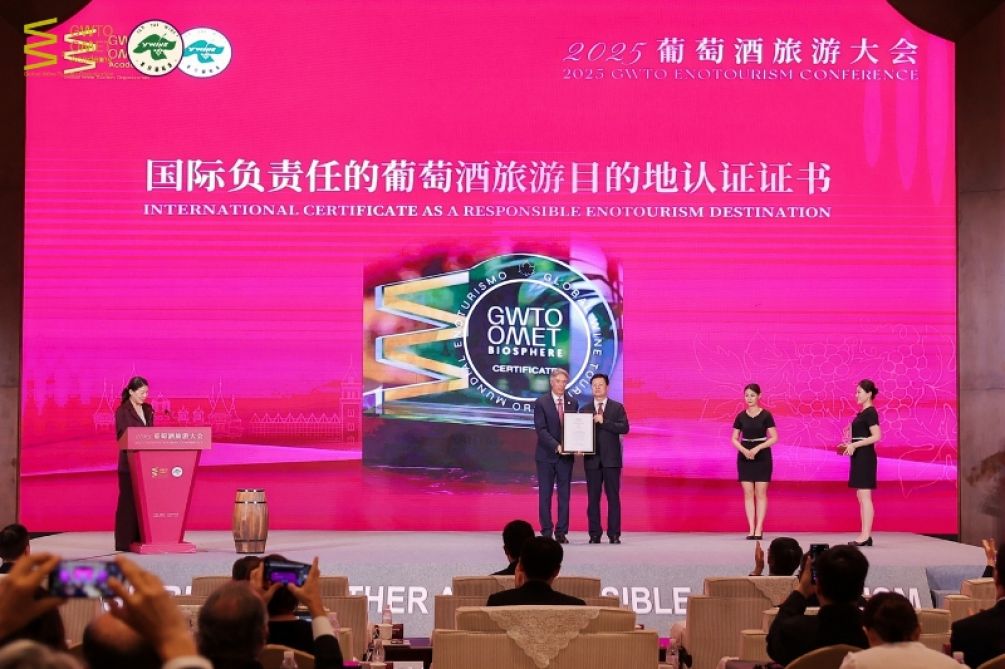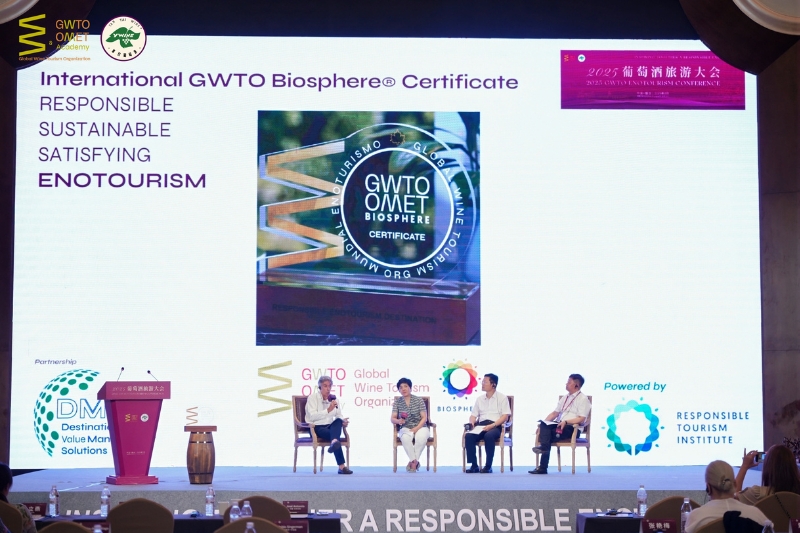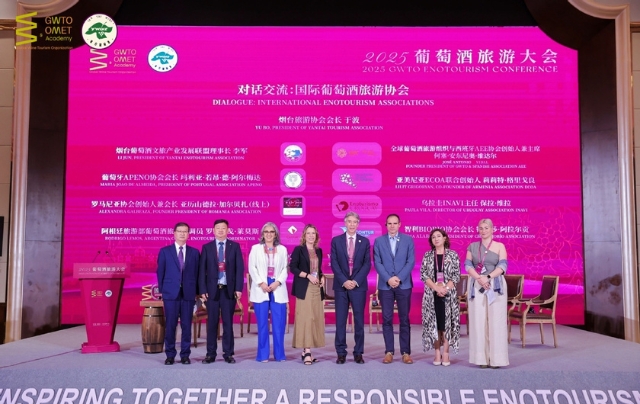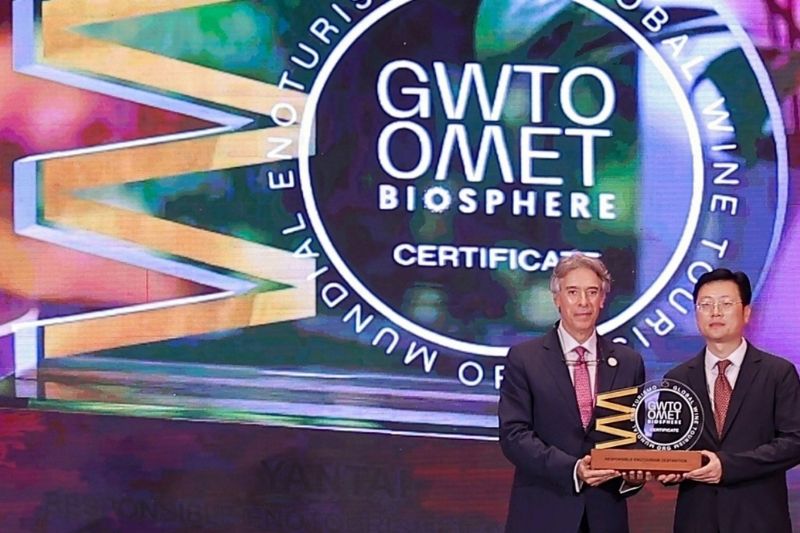The Yantai Wine Bureau has been awarded the International OMET Biosphere Certificate as a Responsible Wine Tourism Destination. This important recognition marks the beginning of the use of the Biosphere sustainability management tool, positioning Yantai as the first entity in China to embark on the path toward Biosphere Certified status—a process that strengthens its commitment to a responsible, ethical tourism model aligned with the United Nations Sustainable Development Goals (SDGs).

The city of Yantai, in China’s Shandong province, continues to reinforce its position as a benchmark for sustainable tourism in Asia. As part of the 2nd OMET Global Summit on Responsible Wine Tourism (GWTO 2025), held from July 2–5, the Yantai Wine Bureau received the International OMET Biosphere Certificate as a Responsible Wine Tourism Destination.
This milestone marks a new chapter for sustainable wine tourism in China, as Yantai becomes the first entity in the country to implement the Biosphere tourism sustainability management tool. With this step, the Yantai Wine Bureau initiates the process toward obtaining the Biosphere Certified label—an international guarantee that verifies the implementation of sustainable best practices in destinations and companies.

This international recognition comes at a time when Yantai is increasingly recognized as a strategic hub for sustainable wine tourism. With a winemaking tradition dating back to 1892—when the historic Changyu Wine Company was founded—Yantai has established itself as the cradle of wine in China, home to more than 200 producers, 60 wineries, and exports to over 80 countries.
Thanks to its temperate monsoon continental climate, stony soils, and coastal location, Yantai is the only wine-producing region in northern China that does not need to bury its vines in winter—an environmental advantage key to developing a more sustainable agricultural model.
Each year, the Yantai Wine Bureau leads events such as the Yantai International Wine Expo, promoting the local economy, wine culture, and responsible tourism.
An international event to strengthen sustainable tourism in Asia.
During the 2nd OMET Summit, more than 300 international participants from over 20 countries—including embassy representatives, government officials, universities, businesses, industry experts, associations, and specialized media—shared strategies to strengthen responsible wine tourism on a global scale. The event was presided over by Sui Zilin, Vice Mayor of the Yantai Municipal People’s Government.
Throughout the sessions, best practices and strategies were shared to align the development of the wine industry with tourism sustainability principles—an area in which Yantai has shown increasing leadership.
One highlight of the summit was the presentation of the Xinhua·China (Yantai) Wine Industry Development Index, developed by Yang Mu, Vice President of the Economic Information Service at Xinhua News Agency, as a tool to measure progress in the wine sector using sustainability criteria.
In addition, Yu Yongxin, Chairman of the Yantai Municipal Committee of the Chinese People’s Political Consultative Conference (CPPCC), announced the creation of the China Wine Industry Support Center—a project that will mobilize 50 billion yuan (approximately 6.96 billion USD) and support over 250 companies, strengthening the so-called "purple economy" as a driver of sustainable cultural tourism.

During the official ceremony, José Antonio Vidal, founder and president of the Global Wine Tourism Organization (GWTO), presented the International OMET Biosphere Certificate to the Yantai Wine Bureau. In his speech, he emphasized the city’s commitment to sustainability and its role as a model wine tourism destination: “Yantai not only offers high-quality wines and a unique setting, but is also building a tourism development model aligned with the values of sustainability, community, and respect for the environment.”
This international protocol promotes a culture of sustainable responsibility encompassing environmental, social, and economic dimensions, fostering local well-being and the protection of natural heritage. It also directly contributes to improving the tourist experience and enhancing the destination’s reputation in the global market.

At Biosphere, we celebrate this strategic step taken by Yantai and its commitment to advancing a tourism model aligned with the Sustainable Development Goals (SDGs). The use of the Biosphere tool will allow the Yantai Wine Bureau to evaluate, develop, and manage its sustainability plan, in accordance with international standards and focused on continuous improvement.
This process will culminate in achieving the Biosphere Certified label, which serves as a quality mark and verified guarantee for all stakeholders in the industry who seek to move toward more responsible, competitive, and sustainable tourism.
Yantai proves that it is possible to build an innovative wine industry without sacrificing a commitment to the planet and its communities. With vision, planning, and strategic partnerships, this destination is positioning itself as a leader in sustainable tourism in Asia, inspiring other regions in China and around the world to follow its example.